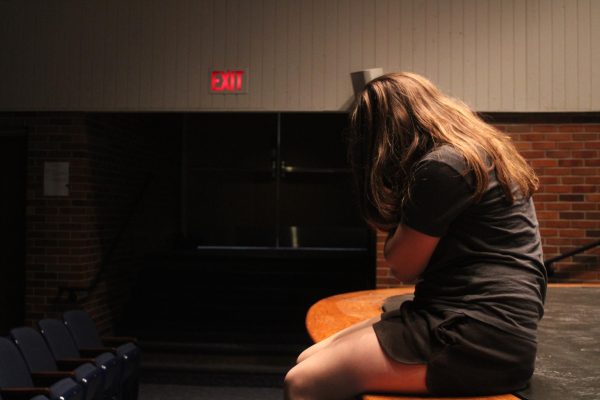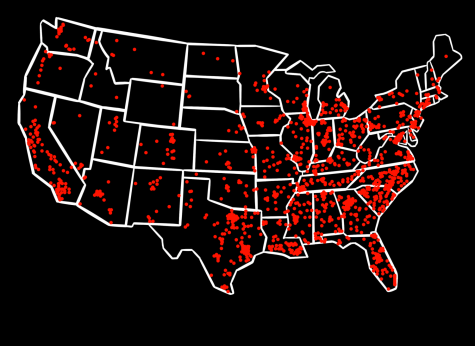In order comes chaos: student body struggles to adapt
September 30, 2022
To ensure students stay in appropriate areas while outside of the classroom, South’s administration met to discuss new policies for this school year, Dr. Lara Cummings, Assistant Principal for Student Services, said. These rules include restrictions regarding lunch seating areas and hallway access, Cummings explained.
The majority of students said they have been affected by the new rules, according to an unscientific survey of 372 students conducted by The Oracle. While these changes may seem minor, they have impacted the daily routines of students at South, including where students can eat lunch at school, senior Hannah Jacob said. Jacob was frustrated to find lunch seating options so limited this year.
“As high schoolers, we should have the opportunity to have our own freedom [when] choosing where we want to sit [at lunch], whether that’s in the hallways, in the cafeteria, or in the SAC (Student Activities Center),” Jacob said. “During the winter, I hope they let us eat [in the hallways] around State and Madison since we will lose [outdoor seating due to cold weather] and the cafeteria will be even more cramped.”
The Oracle Editorial Board applauds the administration for their attempt to restore a sense of safety but urges the administration to recognize these efforts have proved inadequate, leaving a large portion of the student body frustrated.
Senior Dominique Geli emphasized that the new rules are causing physical discomfort in cramped cafeterias and removed previous privileges students have had throughout high school.
“[On the] first day of senior year, I felt bombarded with all of these new rules, especially after the past three years of more [freedom],” Geli said. “The upperclassmen cafeteria is packed full of people and is so overwhelming.”
Preceding the pandemic, policies about seating areas during lunch were similar to this year, Cummings said. At the height of Covid-19 in 2020, lunch seating options were adjusted to handle new social distancing mandates. As this year began, however, Cummings explained that due to reduced Covid-19 regulations, the school is returning to its pre-pandemic standards in terms of lunch seating.
“As a result of people needing to be six feet apart in the cafeteria [during the pandemic], we opened [most of] the first floor for students [to eat lunch],” Cummings said. “[However], it became a safety issue with food everywhere and [there were] many places where we didn’t have security. [South] is a large building, so [it was impossible] for us to have supervision everywhere [during lunch].”
Cummings said these rules have been beneficial in creating a safer environment in the hallways. Last year, South saw many issues with safety in the halls, with an increase in physical violence and students skipping class, she said.
“Student safety is our number one priority at South,” Cummings said. “Last year we had a lot of students that chose not to go to class and it was really challenging to have enough [staff] manpower to help [those students] get to where they were supposed to be. There were so many students [unaccounted for] in the hallways that it was becoming unsafe.”
Jacob hopes to see more communication from the administration for students in the future. A more formal platform of communication could ensure any new guidelines will be more easily followed, she emphasized.
“I would definitely like a heads up for [any future changes],” Jacob said. “Walking into the first day of school and finding out we couldn’t sit in State and Madison or the SAC anymore for lunch without getting a heads up [from the administration] was really constricting and defeating. Even just an email [about new policies from the administration] before school started would have helped.”
The Oracle Editorial Board believes the administration should work to address the overarching issues that are deep-rooted within South by actively communicating with students and providing them with the support they may need, rather than paving over underlying issues with new restrictions on the student body.
While the new policies at South have seemingly increased security within the building, they do not address the underlying concerns at hand. Instead, these rules penalize the entire student body rather than working with individual students that may need extra support, junior Alyssa Blomquist said. Blomquist hopes the administration will dedicate their efforts to specific students who need additional support, as opposed to limiting the entire student body in the future.
Although these changes have been made with good intentions, they do not address why such changes were needed in the first place or work to understand the root causes of these problems.












